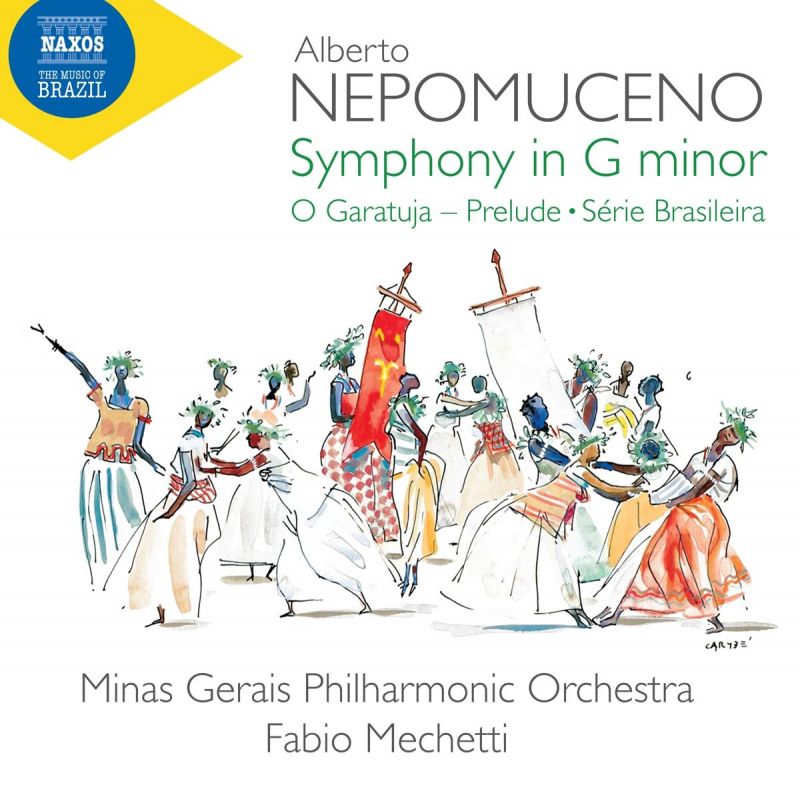NEPOMUCENO Symphony in G minor
View record and artist detailsRecord and Artist Details
Composer or Director: Alberto Nepomuceno
Genre:
Orchestral
Label: Naxos
Magazine Review Date: 05/2019
Media Format: CD or Download
Media Runtime: 68
Mastering:
DDD
Catalogue Number: 8 574067

Tracks:
| Composition | Artist Credit |
|---|---|
| Garatuja - Prelúdio |
Alberto Nepomuceno, Composer
Alberto Nepomuceno, Composer Fabio Mechetti, Conductor Minas Gerais Philharmonic Orchestra |
| Brazilian Suite |
Alberto Nepomuceno, Composer
Alberto Nepomuceno, Composer Fabio Mechetti, Conductor Minas Gerais Philharmonic Orchestra |
| Symphony in G minor |
Alberto Nepomuceno, Composer
Alberto Nepomuceno, Composer Fabio Mechetti, Conductor Minas Gerais Philharmonic Orchestra |
Author: Andrew Farach-Colton
I find the suite far more successful than the G minor Symphony (1893), although the latter gets top billing on the CD cover. It was written around the time Nepomuceno married a student of Grieg’s and was befriended by the Norwegian composer. The back of the disc trumpets Brahms’s influence, and although there are some distinctly Brahmsian moments – the play of two against three in the lovely second theme of the Andante quasi adagio, for instance – there’s just as much Schumann and Wagner. I rather like the unexpected mix of Beethoven and Bizet in the Scherzo but in general there’s not quite enough of Nepomuceno himself.
The lack of individuality is especially noticeable when one turns to the lively prelude to O Garatuja (1904), Nepomuceno’s unfinished comic opera. Here, the rhythms dance, the folk-inflected melodic material is fresh, and a wealth of harmonic and colouristic detail tickles the ear. The entire programme is played with panache by the Minas Gerais Philharmonic, who sound far more polished and mature than one would expect from an orchestra founded just a decade ago.
This is the first instalment in what’s promised to be a 30-disc survey of Brazilian music, a joint project between Naxos and the Brazilian Ministry of Foreign Affairs. If subsequent volumes maintain the high standards heard here, we have a lot to look forward to. Urgently recommended.
Discover the world's largest classical music catalogue with Presto Music.

Gramophone Digital Club
- Digital Edition
- Digital Archive
- Reviews Database
- Full website access
From £8.75 / month
Subscribe
Gramophone Full Club
- Print Edition
- Digital Edition
- Digital Archive
- Reviews Database
- Full website access
From £11.00 / month
Subscribe
If you are a library, university or other organisation that would be interested in an institutional subscription to Gramophone please click here for further information.




